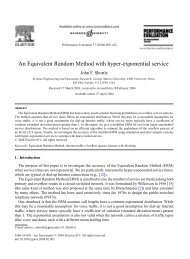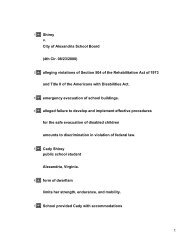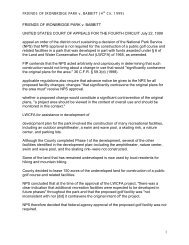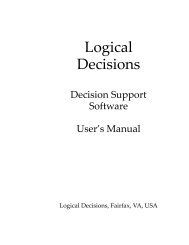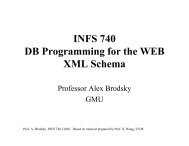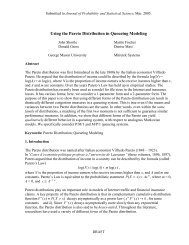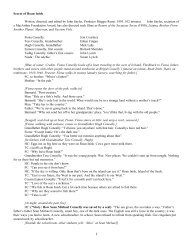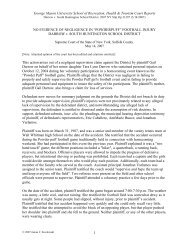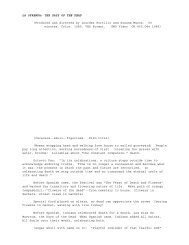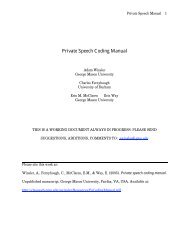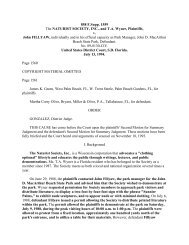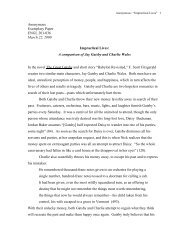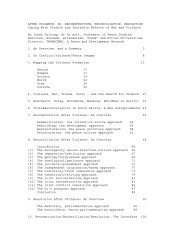Gift of Park Land in Perpetuity - Classweb
Gift of Park Land in Perpetuity - Classweb
Gift of Park Land in Perpetuity - Classweb
Create successful ePaper yourself
Turn your PDF publications into a flip-book with our unique Google optimized e-Paper software.
DECEMBER 2006 LAW REVIEW<br />
<strong>in</strong>come from a lease to Woburn and Burl<strong>in</strong>gton.”<br />
In the 2005 article, the Globe reported that Boston corporation counsel recognized that “there<br />
were several big obstacles to sell<strong>in</strong>g the land for commercial use.” Clearly, as illustrated by the<br />
state court op<strong>in</strong>ions described below, any attempt by the City to sell the land for private<br />
development would violate the public trust requir<strong>in</strong>g the gift <strong>of</strong> land be ma<strong>in</strong>ta<strong>in</strong>ed as a public<br />
pleasure ground <strong>in</strong> perpetuity. Further, depend<strong>in</strong>g on the scope and public availability <strong>of</strong> any<br />
recreational development, a golf course which effectively engulfs a public park may not be<br />
consistent with the ma<strong>in</strong>tenance <strong>of</strong> a “public pleasure ground” with<strong>in</strong> a modern context.<br />
PUBLIC CHARITABLE TRUST<br />
In the case <strong>of</strong> Cohen v. City <strong>of</strong> Lynn, 33 Mass. App. Ct. 271; 598 N.E.2d 682 (1992), the City<br />
conveyed land to a private developer because it claimed the parcel was “no longer usable for<br />
park purposes.” Pla<strong>in</strong>tiffs claimed “the conveyance violated the city's obligations under a public<br />
charitable trust which they claimed arose <strong>in</strong> 1893 when the parcel was acquired by deeds which<br />
state the land is to be used ‘forever for park purposes’."<br />
A state statute authorized the state attorney general to br<strong>in</strong>g an action <strong>in</strong> state court “to enforce<br />
the purpose or purposes <strong>of</strong> any gift or conveyance which has been accepted by any city for a<br />
specific purpose or purposes <strong>in</strong> trust or otherwise, or the terms <strong>of</strong> such trust.” In the event the<br />
purposes <strong>of</strong> the trust “have become impractical” or the purpose <strong>of</strong> the trust had term<strong>in</strong>ated, the<br />
statute authorized the state court “to determ<strong>in</strong>e the purposes or uses to which the property<br />
<strong>in</strong>volved shall be devoted.” G. L. c. 214, § 3(10)<br />
In this particular <strong>in</strong>stance, the trial judge had concluded that “the parcel was still impressed with<br />
the public charitable trust orig<strong>in</strong>ally established, and it had not been demonstrated that it had<br />
become impossible or impracticable to carry out the trust purposes.” In so do<strong>in</strong>g, he noted that<br />
the parcel was “suitable for park purposes,” possess<strong>in</strong>g “a beautiful scenic ocean view" and was<br />
"suitable for park purposes." Moreover, at the time <strong>of</strong> the City’s attempted conveyance to a<br />
private developer (Gilberg), the parcel "was a popular area for walkers, riders, and joggers" and<br />
"provided a scenic vista <strong>of</strong> open space suitable for park purposes and re<strong>in</strong>forced the 'greenness'<br />
<strong>of</strong> the area." As a result, the trial judge concluded that “the trust obligations could not be<br />
impaired by the enactment <strong>of</strong> special legislation purport<strong>in</strong>g to authorize the city to convey the<br />
parcel at a private sale and declared the conveyance to Gilberg null and void.” The City<br />
appealed.<br />
Assum<strong>in</strong>g “the parcel was still impressed with the public charitable trust orig<strong>in</strong>ally established,”<br />
the City argued on appeal “compliance with the orig<strong>in</strong>al terms is today impracticable” and that<br />
the doctr<strong>in</strong>e <strong>of</strong> “cy pres” (from the French mean<strong>in</strong>g “as close as possible”) should be applied to<br />
“br<strong>in</strong>g the conveyance with<strong>in</strong> the orig<strong>in</strong>al purposes <strong>of</strong> the trust.” The appeals court rejected this<br />
argument.<br />
2



